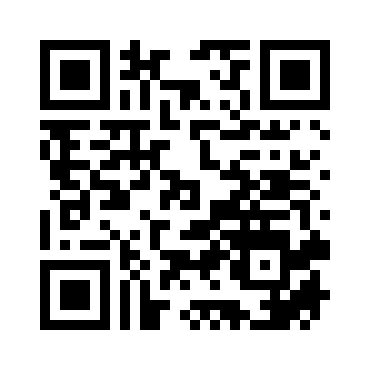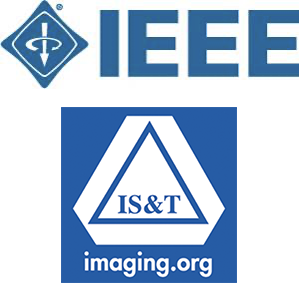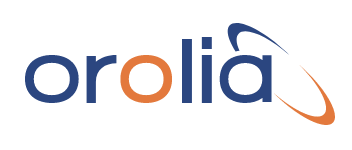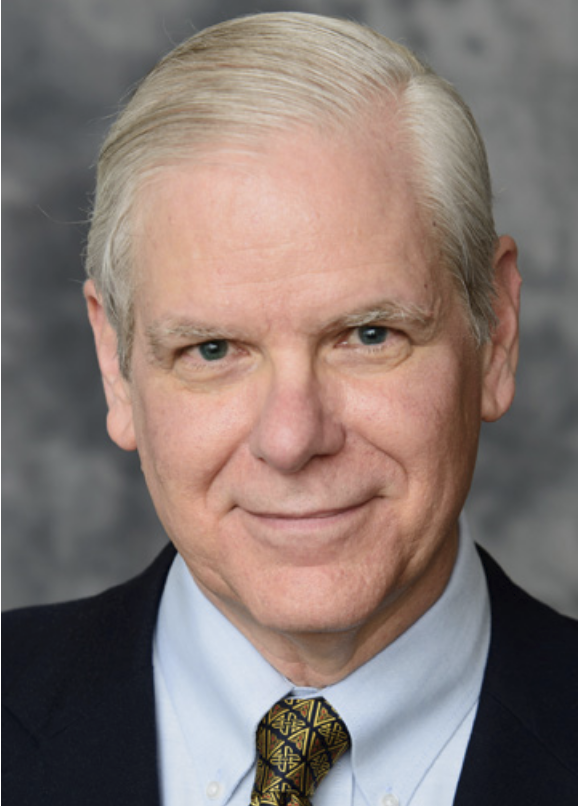Call for Papers
Registration is open !
2022 IEEE Western New York Image and Signal Processing Workshop (WNYISPW)
November 4th, 2022 at the RIT Student Development Center ( 8:00 AM - 5:30 PM )
For paper or poster submission (reviewed for publication by IEEE):
Contact 2022WNYISPW@gmail.com
 The IEEE Western New York Image and Signal Processing Workshop (WNYISPW) is a premier venue for promoting image and signal processing research in our area and for facilitating interaction between academic researchers, industry professionals, and students.
The IEEE Western New York Image and Signal Processing Workshop (WNYISPW) is a premier venue for promoting image and signal processing research in our area and for facilitating interaction between academic researchers, industry professionals, and students.
Link to Registration: https://events.vtools.ieee.org/m/321072
 The 2022 Western New York Image and Signal Processing Workshop is sponsored by the Rochester Section of the IEEE Signal Processing Society with technical cooperation with the Rochester Chapter of the Society for Imaging Science and Technology.
The 2022 Western New York Image and Signal Processing Workshop is sponsored by the Rochester Section of the IEEE Signal Processing Society with technical cooperation with the Rochester Chapter of the Society for Imaging Science and Technology.

Brought to you by Orolia.

With additional support from L3 Harris, SRC, and Vanteon.

The workshop is organized as a morning and an afternoon session,
each session with a Keynote address, three Invited presentations and three submitted presentations.
Lunch and a poster session separate the two sessions.
The workshop will be held in a hybrid in-person / virtual format on Friday, November 4th, 2022
from 8:00 AM (check-in) to 5:30 PM (awards & wrap-up) at the RIT Student Development Center.
- Link to the RIT Campus Map: https://maps.rit.edu/
- The workshop is hybrid, available in-person or virtually using WebEx.
- Registration will provide Web access to Matlab tutorials.
- Paper submission tracks:
1) Full paper (archival) submission: A four page previously unpublished paper for oral, poster, or virtual poster presentation (please indicate preference) .
All accepted full papers (oral, poster, virtual poster) will be submitted for inclusion in IEEE Xplore as well as other abstracting and indexing databases.
- Full papers should be developed using IEEE templates, resources and tools (links below) and submitted as PDF files.
- Accepted full papers may become oral in-person presentations (a limited number of slots) or poster presentations.
2) Abstract-only (non-archival) submission: Recent work for poster or virtual poster presentation that is not quite ready for publication, or is in review,
or was recently accepted for publication. Abstracts will be included in the Workshop proceedings (non-archival), but not in IEEE Xplore or other databases.
- Abstracts should be a good summary of the work and its origins, to be presented as a poster (in-person and virtual) at the Workshop.
- Presentation options for an accepted submission at the Workshop:
1) Oral presentation (full paper only) - Limited number of 15 minute time slots (12 minute presentation, 3 minutes for Q&A) in-person or from a virtual site.
2) In-person Poster presentation (full paper or abstract-only) - A-frame easels for posters will be provided.
The poster session will be held from 12:00 until 1:30 PM in the lobby area adjacent to the conference rooms.
All in-person poster presenters should also submit a short MP4 video presentation (aim for 5 minutes) for viewing by virtual attendees (see Virtual presentation).
3) Virtual presentation (full paper or abstract-only) - A pre-recorded MP4 video presentation (aim for 5 minutes) of the more detailed poster version of the abstract content.
All poster and virtual poster MP4 presentations will be advertised at the Workshop and on the Workshop web page.
All poster and virtual poster MP4 presentations will be available over the web for in-person and virtual attendee viewing.
We ask the corresponding author of each submitted MP4 presentation to respond to audience questions submitted via e-mail.
- Please submit full papers or abstracts for review and inclusion in the Workshop via e-mail at 2022WNYISPW@gmail.com
- All submissions will be peer reviewed for acceptance by a panel of academic and industry professionals according to IEEE norms.
- Templates provide a consistent format for papers appearing in the conference/workshop proceedings.
IEEE resources and tools for authors: https://conferences.ieeeauthorcenter.ieee.org/write-your-paper/authoring-tools-and-templates/
IEEE manuscript templates: https://www.ieee.org/conferences/publishing/templates.html.

Topics for the workshop include, but are not limited to:
Image Processing:
- Applications of Machine Learning and Artificial Intelligence
- Computer Vision
- Image Compression and Segmentation
- Image and Color Science
- Object Recognition and Detection
- Medical Imaging
- Human-Computer Interaction
- Video Processing and Analysis
Signal Processing:
- Radar and Wireless Communications
- Synthetic Aperture Radar
- Remote Sensing
- Electronic Intelligence
- Waveform Detection and Parameter Estimation
- Speech and Audio Enhancement and Recognition
- Applications of Machine Learning and Artificial Intelligence
| Publication Review Committee: |
|
| Dr. Ziya Arnavut |
State University of New York at Fredonia |
| Dr. Alex Byrley |
Lockheed Martin |
| Dr. Nathan Cahill |
Rochester Institute of Technology |
| Dr. Christopher Kanan |
University of Rochester |
| Dr. Paul Lee |
University of Rochester |
| Dr. Alexander Loui |
Rochester Institute of Technology |
| Dr. Ray Ptucha |
Apple Inc. |
| David Odgers |
Odgers Imaging |
| Dr. Eric K. Zeise |
Consultant |
| Important Dates: |
|
| 5-September-2022 |
Paper and Poster submission opens |
| 18-October-2022 |
Paper and Poster submission closes |
| 20-October-2022 |
Abstract-only submission closes |
| 28-October-2022 |
Submission of camera-ready paper, poster or virtual poster files |
| 21-October-2022 |
Notification of Acceptance |
| 28-October-2022 |
Early (on-line) Registration deadline |
| 2-November-2022 |
Submission of all MP4 videos of poster presentations (in-person and virtual) |
| 4-November-2022 |
Workshop |
| Workshop Cost: |
|
| $50 |
Non-IEEE member, in-person attendance |
| $15 |
Non-IEEE member, virtual-only attendance |
| $40 |
IEEE member, in-person attendance |
| $10 |
IEEE member, virtual-only attendance |
| $0 |
Student (with ID), made possible by L3 Harris |
| Workshop Agenda: |
|
| 8:00 - 8:20 AM |
Check-in & Coffee |
| 8:20 - 8:30 AM |
Welcome to the 2022 WNYISPW |
| 8:30 - 9:30 AM |
Keynote by Dr. Diane Dalecki: Biomedical Ultrasound for Quantitative Imaging, Biotechnology, and Therapy. |
| 9:30 - 10:15 AM |
Submitted papers |
| 10:15 - 10:30 AM |
Cofee break |
| 10:30 - 12:00 AM |
Invited papers |
| 12:00 - 1:30 PM |
Lunch and Poster Session |
| 1:30 - 2:30 PM |
Keynote by Dr. James Fienup: Sensing and Correcting Aberrations of Hubble and James Webb Space Telescopes by Solving an Inverse Problem. |
| 2:30 - 3:15 PM |
Submitted papers |
| 3:15 - 3:30 PM |
Coffee break |
| 3:30 - 5:00 PM |
Invited papers |
| 5:00 - 5:30 |
Awards and wrap-up |
Detailed Workshop Agenda (all content available in-person and remotely via WebEx or WNYISW website):
Morning Keynote presentation:
 Dr. Diane Dalecki
Dr. Diane Dalecki
Chair, Biomedical Engineering, University of Rochester
The Kevin J. Parker Distinguished Professor in Biomedical Engineering
Professor of Electrical and Computer Engineering
Director, Rochester Center for Biomedical Ultrasound
Topic:
Biomedical Ultrasound for Quantitative Imaging, Biotechnology, and Therapy.
Abstract: Biomedical ultrasound innovations continue to advance the impact and utility of diagnostic imaging, and new ultrasound technologies are emerging as valuable approaches for therapies and biotechnology applications. Rochester has a long history as a location for world class innovation and research in biomedical ultrasound. The Rochester Center for Biomedical Ultrasound (RCBU) provides a rich collaborative environment for advancing new diagnostic ultrasound imaging modalities, and discovering novel therapeutic applications of ultrasound in medicine and biotechnology. This presentation will provide an overview of biomedical ultrasound, and present examples of advances from our laboratory related to high-frequency, quantitative ultrasound imaging, and applications of ultrasound for tissue engineering and regenerative medicine.
Biography: Diane Dalecki is the Kevin J. Parker Distinguished Professor in Biomedical Engineering at the University of Rochester in Rochester, NY. She is the Chair of the Department of Biomedical Engineering at the University of Rochester, and she is also the Director of the Rochester Center for Biomedical Ultrasound, a multidisciplinary center dedicated to advancing biomedical ultrasound for imaging and therapy. Dr. Dalecki is a Fellow of the Acoustical Society of America, the American Institute of Ultrasound in Medicine, and the American Institute for Medical and Biological Engineering. Her laboratory is dedicated to advancing novel diagnostic ultrasound techniques, and discovering and developing new therapeutic applications of ultrasound in medicine, biology, and biotechnology. A particular focus of her laboratory is on advancing novel ultrasound technologies for tissue engineering and regenerative medicine.
| Morning Submitted Presentations |
|
|
|
Your Work Presented Here! (in-person and live-view via WebEx) |
|
| Morning Invited Presentations |
|
|
| Morning Session 1: |
Dr. Steven McAleavey |
Waves within Waves: Probing Mechanical Properties with Ultrasound Elastography |
| Morning Session 2: |
Dr. Edmund Lalor |
Encoding and Decoding Models of EEG Responses to Natural Speech |
| Morning Session 3: |
Arturo Canales (Dr. Scott Carney) |
Computational Removal of Imaging Artifacts |
| Lunch and Poster Session |
|
|
|
Your Work Presented Here! (in-person & virtually via pre-recorded MP4 video file links on WNYISW website) |
|
|
( List of available accepted Poster MP4 video file links will appear HERE ) |
|
Afternoon Keynote presentation:
 Dr. James Fienup
Dr. James Fienup
Robert E.Hopkins Professor of Optics
Distinguished Scientist in the Laboratory for Laser Energetics
Professor of Electrical and Computer Engineering
Professor in the Center for Visual Science
Topic:
Sensing and Correcting Aberrations of the Hubble and James Webb Space Telescope by Solving an Inverse Problem.
Abstract: The James Webb Space Telescope (JWST) was launched, and the 18 segments making up its 6.5-meter primary mirror have been successfully aligned. An essential part of the alignment is to solve an inverse problem: what aberrations in the primary mirror segments could give rise to the blurred image of a star taken with the telescope? The solution is then used to send commands to the telescope where actuators behind the mirror segments push and pull them into the desired shape, allowing it to produce sharp images. Similar algorithms were used to diagnose the aberrations of the Hubble Space Telescope, which allowed the construction of correction optics that gave us the beautiful images that we have enjoyed for the last 30 years.
Biography: James R. Fienup received an AB in physics and mathematics from Holy Cross College (Worcester, MA), and MS and PhD (1975) degrees in applied physics from Stanford University, where he was a National Science Foundation graduate fellow. He performed research for 27 years at the Environmental Research Institute of Michigan and Veridian Systems, where he was a senior scientist. He joined the faculty at the University of Rochester in 2002 as the Robert E. Hopkins Professor of Optics. Professor Fienup is a fellow of Optica and of the International Society for Optical Engineering (SPIE), and is a senior member of IEEE. He was awarded the Rudolf Kingslake Medal and Prize for 1979 by the SPIE, the International Prize in Optics for 1983 by the International Commission for Optics, the Emmett N. Leith Medal by Optica for 2013 and became a member of the National Academy of Engineering in 2012. He was a distinguished visiting scientist at the Jet Propulsion Laboratory in 2009. He was editor-in-chief of the Journal of the Optical Society of America A, 1997-2003. He previously served as division editor of Applied Optics - Information Processing, and associate editor of Optics Letters. One of his papers [J.R. Fienup, “Phase Retrieval Algorithms: a Comparison,” Appl. Opt. 21, 2758-2769 (1982)] has received over 6,000 citations (Google Scholar) and is the most highly cited paper (out of over 50,000) in the journal Applied Optics.
| Afternoon Submitted Presentations |
|
|
|
Your Work Presented Here! (in-person and live-view via WebEx) |
|
| Afternoon Invited Presentations |
|
|
| Afternoon Session 1: |
Hanjia Lyu (Dr. Jiebo Luo) |
Understanding Political Polarization via Jointly Modeling Users, Connections, |
|
|
and Mulltimodel Contents on Heterogeneous Graphs |
| Afternoon Session 2: |
Dr. Matthew Wright |
DeFaking Deepfakes: Challenges for Real-World Mitigation of Manipulated Media |
| Afternoon Session 3: |
Dr. Christopeher Kanan |
Combatting Bias in Deep Learning |
| Virtual Presentations |
|
|
|
Your Work Presented Here! (list of pre-recorded MP4 video files on WNYISPW website) |
|
|
( List of available accepted Virtual Poster MP4 video file links will appear HERE ) |
|
 The IEEE Western New York Image and Signal Processing Workshop (WNYISPW) is a premier venue for promoting image and signal processing research in our area and for facilitating interaction between academic researchers, industry professionals, and students.
The IEEE Western New York Image and Signal Processing Workshop (WNYISPW) is a premier venue for promoting image and signal processing research in our area and for facilitating interaction between academic researchers, industry professionals, and students.  The 2022 Western New York Image and Signal Processing Workshop is sponsored by the Rochester Section of the IEEE Signal Processing Society with technical cooperation with the Rochester Chapter of the Society for Imaging Science and Technology.
The 2022 Western New York Image and Signal Processing Workshop is sponsored by the Rochester Section of the IEEE Signal Processing Society with technical cooperation with the Rochester Chapter of the Society for Imaging Science and Technology.



 Dr. Diane Dalecki
Dr. Diane Dalecki  Dr. James Fienup
Dr. James Fienup